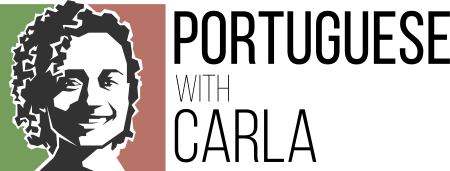The Meaning of Obrigado – Saying Thank You in Portuguese
Thank you is one of the first expressions you learn when you start exploring a new language. It is a polite expression you will use every day. Besides, natives will appreciate hearing you use it even if it is the only word you can say in their language.
Most people know that the Portuguese word for Thank you is Obrigado
Additionally, you can use other common expressions similar to the English Thank you very much or Many thanks. Knowing these expressions helps you convey the right meaning and broadens your vocabulary.
So, how should you say thank you in Portuguese? Where did the expression Obrigado
How to Say Thank You in Portuguese
Do you want to learn Portuguese? Check out our incredible European Portuguese course – The Journey! It is fun, created by native speakers with real-life dialogues, so you can learn and become a confident speaker. Try it now!

Continue reading to explore the different ways to say thank you in the Portuguese language.
Obrigado/a and Muito Obrigado/a
Obrigado
Thus, Muito obrigado
The Origin of Obrigado
The word Obrigado
Some people link it to the Japanese word Arigato. However, using Obrigado

The transformation likely started from the final expressions used in the formal letter and eventually simplified. It was common practice to finish these letters with the sentence: Obrigado a Vossa Mercê
Expressing Gratitude in Different Situations
Like in other languages, you will find a few different ways for a native speaker to say thank you in Portuguese. Some are only appropriate for formal situations, while others suit informal settings. Additionally, certain words are mostly used among young people in a casual context.
Remember that saying thank you is not the only form of politeness in Portuguese. Other expressions, such as greetings (Bom dia
Formal Expressions of Gratitude
In formal situations, you can use expressions like Muitíssimo obrigado/a
Informal Expressions of Gratitude
Informal situations are much less rigid and allow you to express yourself in a more relaxed way. For example, Obrigadão
Sometimes, you might also hear natives use Obrigadinho/a. In this case, the intonation and body language of the speaker will indicate if it signifies thank you or if it is being used sarcastically.

Thank You For (Obrigado por…)
One of the most meaningful ways to show gratitude is by being specific. In Portuguese, you can say that by adding the word Por (meaning For or By). Thus, use Obrigado por (male) or Obrigada por
For example, if someone helped you, you can say Obrigado pela ajuda
Another common situation is when someone cooks for you. In that case, you can say Obrigado por cozinhar

Other Expressions of Gratitude
There are many ways to say thank you in Portuguese. The Portuguese verb Agradecer
- Obrigado/a por cozinhar – Agradeço-lhe por ter cozinhado
- Obrigado/a por vir – Agradeço que tenha vindo
- Obrigado/a pela ajuda – Agradeço a sua ajuda
Another expression you will hear a lot in Portugal and Brazil is Dar graças
Finally, especially in northern Portugal, it is common for natives to say Bem haja!
Brazilian Portuguese Vs. European Portuguese
You can also use it to replace Obrigado/a
The ways to say thank you in Portuguese differ between its two main variants. So far, you have learned about what is most common to hear in Portugal. In Brazil, one of the most prevalent ways to say thanks and to answer when someone thanks you is Valeu. Like Bem haja
Are you looking to expand your European Portuguese skills? Then, discover The Journey! It is a unique language program that takes you on an adventure through Portuguese lands. Discover all about the language, culture, and people of Portugal and learn a second language while having fun. Start your 7-day free trial today!
Learn European Portuguese the Instinctive Way!
For the last decade, we’ve been working on putting together the best possible European Portuguese course. After much research, feedback from our students, and several iterations, we think we’ve got it! 😉
At the base of it all is a sound conviction that languages are better learned instinctively, so the process needs to be engaging, varied, and enjoyable. Throughout, we used scientifically proven techniques to help you master pronunciation, phrase construction, oral understanding, grammar, and all the necessary bits to get you to fluency. And still, the whole thing is presented as an adventure. It’s a course like no other. Click the button below to see for yourself!
Responding to Thank You in Portuguese
De nada
In Brazilian Portuguese, natives use Por nada in addition to De nada
8 Ways to Say You Are Welcome in Portuguese
In Portuguese from Portugal, you can use at least eight different expressions to say You Are Welcome:
- De nada
- Nada
- Sempre às ordens
- Sem problemas
- Ora essa
- Não tem de quê
- Disponha (sempre)
- Obrigado/a eu/nós
Learn more! Watch 10 ways to say “You’re Welcome” in European Portuguese (impress the natives).
Muito Obrigado! – Say Thank you in Portuguese
Thank you is one of the most basic polite expressions across all languages. Regardless of where you are in the world and what languages you speak, you must know how to show gratitude towards others. In Portuguese, the most common term to do that is Obrigado/a
The evolution of this word shows the continuous adaptation and reinvention within the Portuguese language. Additionally, there are many ways to say thank you in Portuguese, whether in the European or Brazilian variant. Besides, you must also learn how to respond when someone thanks you.
So, what is your favorite way to say thanks in Portuguese? Did you know about the origin of the Portuguese word Obrigado/a? What is the one word used to say thank you in your mother tongue? Comment your thoughts below!








It’s been a very good start for me to get to learn Portuguese I’m really excited I hope that with you good teaching Technics I will get to start speaking Portuguese soon thanks Obrigado.
Thank you for your words! We are really happy to know you’re starting your Portuguese learning journey with us. Feel free to reach out whenever you need. Obrigada!